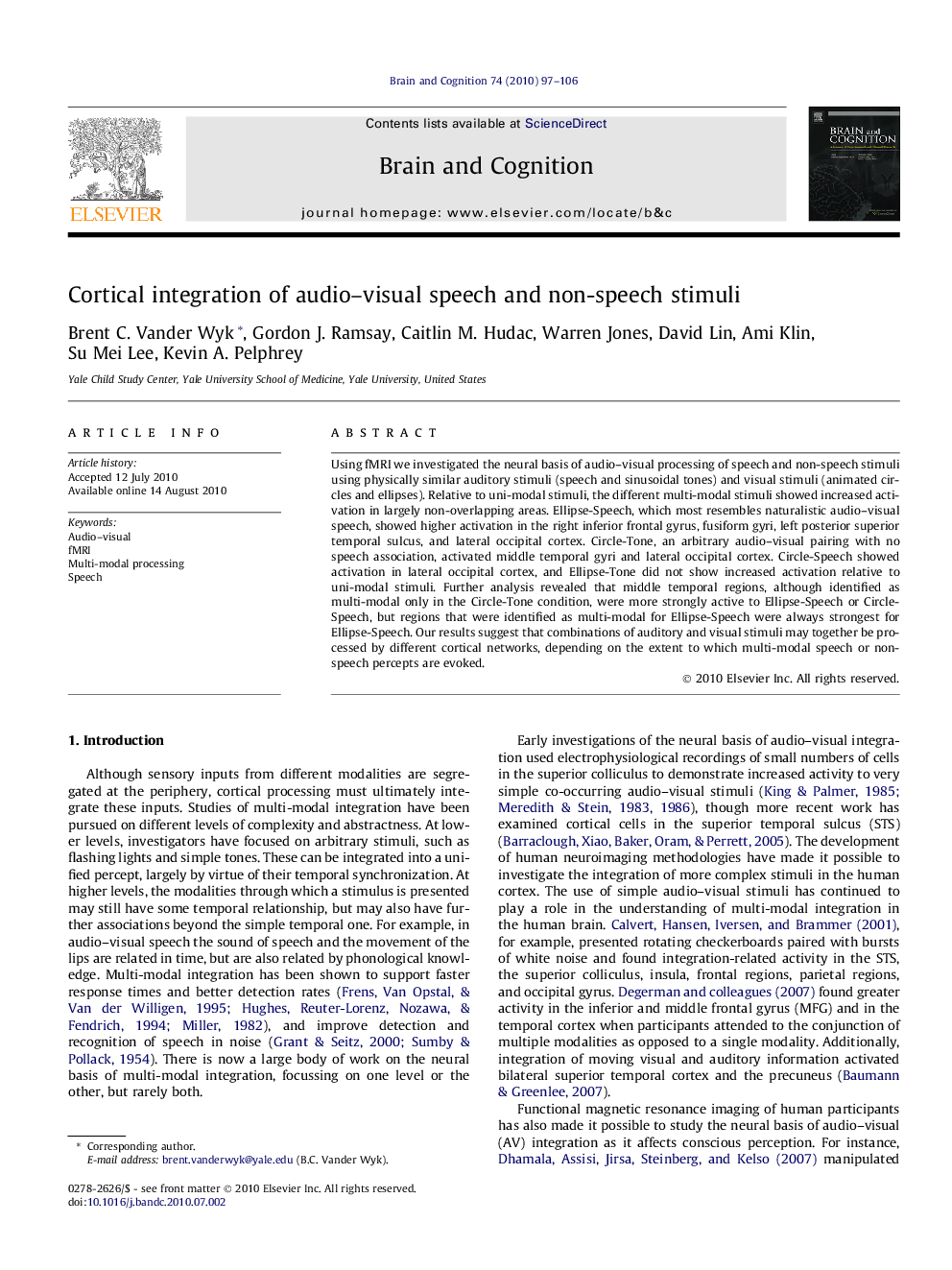| کد مقاله | کد نشریه | سال انتشار | مقاله انگلیسی | نسخه تمام متن |
|---|---|---|---|---|
| 924846 | 921280 | 2010 | 10 صفحه PDF | دانلود رایگان |

Using fMRI we investigated the neural basis of audio–visual processing of speech and non-speech stimuli using physically similar auditory stimuli (speech and sinusoidal tones) and visual stimuli (animated circles and ellipses). Relative to uni-modal stimuli, the different multi-modal stimuli showed increased activation in largely non-overlapping areas. Ellipse-Speech, which most resembles naturalistic audio–visual speech, showed higher activation in the right inferior frontal gyrus, fusiform gyri, left posterior superior temporal sulcus, and lateral occipital cortex. Circle-Tone, an arbitrary audio–visual pairing with no speech association, activated middle temporal gyri and lateral occipital cortex. Circle-Speech showed activation in lateral occipital cortex, and Ellipse-Tone did not show increased activation relative to uni-modal stimuli. Further analysis revealed that middle temporal regions, although identified as multi-modal only in the Circle-Tone condition, were more strongly active to Ellipse-Speech or Circle-Speech, but regions that were identified as multi-modal for Ellipse-Speech were always strongest for Ellipse-Speech. Our results suggest that combinations of auditory and visual stimuli may together be processed by different cortical networks, depending on the extent to which multi-modal speech or non-speech percepts are evoked.
Journal: Brain and Cognition - Volume 74, Issue 2, November 2010, Pages 97–106